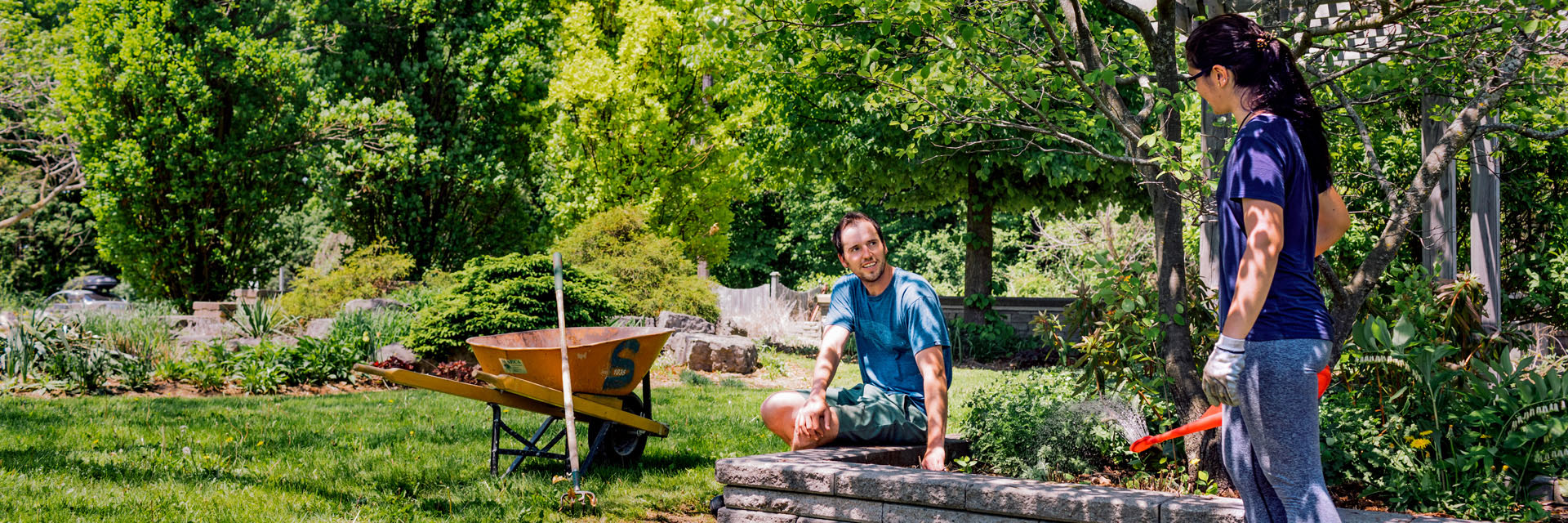The sustainable Seneca is one of the three pillars of Au Large, along with the equitable Seneca and the more virtual Seneca.
With the release of its first sustainability plan, Seneca is focusing on four priority themes: leadership, community, education and research, and operations.
It isn’t starting from scratch (check out Awards and Recognition). Its plan builds on the work of the Sustainable Seneca Committee and connects its actions to the United Nations’ Sustainable Development Goals.
Seneca’s commitment to sustainability is seen in academic programs, services, applied research and physical spaces. This has been recognized by a silver STARS rating from the Association of Sustainability in Higher Education.
Sustainability is a complex objective that goes well beyond the environment. It also includes social equity, cultural vitality and economic responsibility. Everyone at Seneca has a role to play. And, together, the institution is accepting the challenge to build the sustainable Seneca. Seneca's Sustainability Policy is one way Seneca demonstrates a commitment to social, economic, and environmental sustainability.







